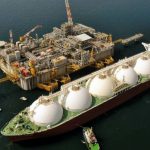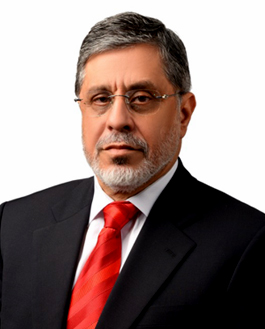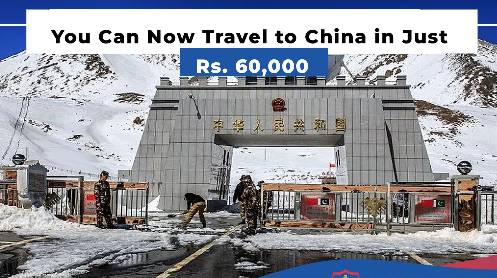Qatar is forging ahead with the expansion of the world’s largest liquefied natural gasproject and eyeing investment opportunities overseas despite a slump in global energydemand and the collapse of oil prices.Saad al-Kaabi, the country’s energy minister and chief executive of Qatar Petroleum,said commercial bids for the project in the North Field, the planet’s biggest naturalgasfield, would be delayed because of the Covid-19 pandemic but insisted that allcontracts would be awarded by the end of the year.“The North Field expansion project is moving full steam ahead, no delay there. Theonly issue is because of Covid and suppliers and so on,” Mr Kaabi said in a briefingwith the US-Qatar Business Council. “In my view, you continue your plan and investin the bad times because these projects are long term.”The project will increase Qatar’s production capacity from 77m tonnes of LNG perannum to 110m by 2025, which could rise to 126m tonnes two years later. The moveshould help the small Gulf state regain the title of the world’s top LNG producer fromAustralia at a time when other projects have been thrown into doubt by the pandemic.Oil & Gas industryQatar pushing ahead with LNG expansion despite slumping demand.
LNG prices have fallen to record lows in Asia, the centre of demand growth for thesupercooled fuel, as the economic impact of the health crisis has curbed gasconsumption by industry.“There’s a lot of demand for gas around the world . . . it’s slowed down definitelybecause of the pandemic, prices have been low,” Mr Kaabi said. “But for us to feel thepain prices would need to be very low . . . We are going to expand and if there is roomto go above 126m [tonnes per annum] you might hear us in a few years go for it.”He said that while Qatar Petroleum was cutting costs by about 30 per cent, there was“absolutely no way” the wealthy Gulf state would be reducing its production as largeoil exporters have been forced to do in a bid to stem the slide in crude prices.“Once you have an issue with demand the most expensive people go out first, theycan’t sell. So I think a whole bunch of people would have to close down LNG before itgets to us,” Mr Kaabi said. “There’s absolutely no way we will be reducing production.”He added that the turmoil in energy markets could also create opportunities for state-owned Qatar Petroleum to accelerate its investment in international projects.“There are opportunities that will arise and we are a company that has resources andwe are in a very good financial position,” Mr Kaabi said. “Fortunately for us we may beable to take advantage of some of the situations and we can enter maybe at a betterdeal.”This month, Qatar Petroleum reached agreements on three blocks in the Campecheoffshore basin in Mexico and reached an agreement with Total, the French energycompany, to acquire a 45 per cent participating interest in two offshore blocks in IvoryCoast.The North Field expansion project has attracted huge interest from the world’s energymajors including Total, Royal Dutch Shell, ExxonMobil and ConocoPhillips, as well asothers that see it as an opportunity to invest in a fuel expected to remain moreresilient than oil because of its lower emissions.Qatar Petroleum is seeking to secure partnerships for projects overseas with the samecompanies and is leveraging the North Field development to boost its internationalexpansion plans.
The global LNG market has grown rapidly in recent years, spurred by new projects inAustralia and Russia and the emergence of the US as a significant exporter as theshale boom created ample supplies. However it is also fiercely competitive with manyplanned projects predicted to struggle to make it to completion without a quickrecovery in prices internationally.“The next few months are highly uncertain but the fundamentals of gas haven’tchanged on a long-term basis — we will need more LNG supplies,” said Frank Harrisat consultancy Wood Mackenzie. “When many of their rivals are logjammed it’s theperfect opportunity for Qatar to push ahead.”Mr Kaabi said that integrated oil and gas companies in the US would still thrive butcast doubt on the ability of “single players” terminal developers to make it work. “It’sthe people who can do it at the right cost structure,” he said.





